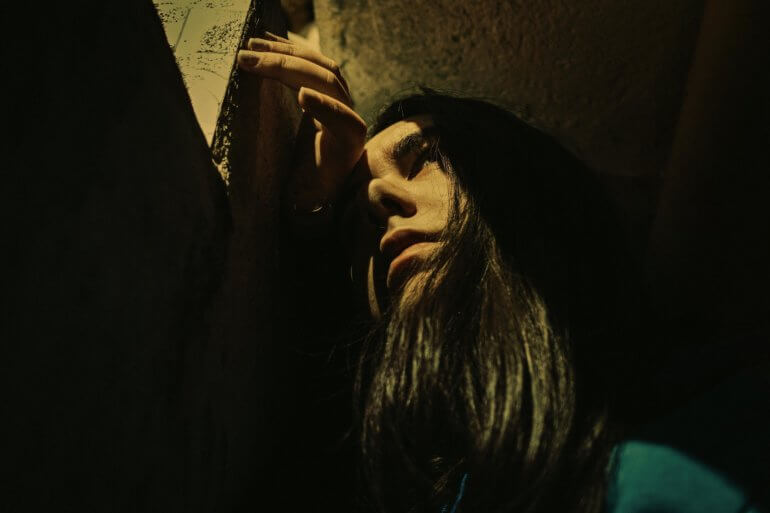
How Can We Celebrate Our Freedom this Passover When There Are Still Hostages Being Held in Gaza?
Dear Jew in the City,
How can we celebrate our freedom this Passover when there are still hostages being held in Gaza?
Sincerely,
David
Dear David,
Thanks for your question. Shortly after the current war in Gaza began and antisemitism was being normalized in the U.S. (and elsewhere), I replied to a completely different question with an answer somewhat similar to the one I’m about to give you. In fact, I’m tempted to send you the middle six paragraphs of that Q&A verbatim. (I’m going to resist that urge, but if you can identify that article, you’ll note a little overlap.)
Your question was: How can we celebrate our freedom this Passover when there are still hostages being held in Gaza? The answer is: we compartmentalize.
For those who may not be familiar with the term, here’s how AI defined it:
In psychology, compartmentalization is a defense mechanism where individuals mentally separate conflicting thoughts, emotions, or experiences to avoid the discomfort of contradiction. It’s like putting different aspects of life into separate “boxes” to prevent them from interfering with each other.
Compartmentalization is an inherent part of life – and particularly of Jewish life – because if it weren’t, we would live in a perpetual state of mourning.
We see this idea illustrated in a story found in Bereishis Rabbah. Regarding God “regretting” making man in the time of Noah, an apostate challenged Rabbi Yehoshua ben Korchah, “Didn’t God foresee how rotten man would end up being?”
Rabbi Yehoshua ben Korchah responded by asking the apostate, “Do you have kids?” When he replied in the affirmative, Rabbi Yehoshua ben Korchah continued, “And what did you do when they were born?”
“I threw a party, of course!”
“But don’t you know that they’ll eventually die? Why don’t you mourn that fact?”
“When it’s time to celebrate, we celebrate,” the apostate said, rather matter-of-factly. “We mourn when it’s time to mourn.”
The Midrash does not record that Rabbi Yehoshua ben Korchah said, “Aha!” at this point, but I like to imagine that he did.
Of course, while Rabbi Yehoshua ben Korchah led the apostate to this conclusion, he didn’t originate the concept. King Solomon lays it out for us in the book of Koheles (Ecclesiastes). There he writes, “Everything has its time… there’s a time to cry and a time to laugh; a time to mourn and a time to dance…” (3:1, 4).
We see this idea at work in the Jewish calendar. Every summer, we observe a period of intensifying mourning, culminating with Tisha b’Av, which commemorates the destruction of the Temple. We spend three weeks lamenting the loss of the Temple, starting with refraining from music and parties, and progressing to ultimately sitting on the floor and fasting.
And yet, a few months later we celebrate Chanukah, which commemorates our defeat of the Syrian-Greeks. This is followed by Purim, on which we recall our salvation from destruction in Persia. This is followed in turn by Pesach, which celebrates our redemption from Egypt. We rejoice on these occasions even though the Temple – which we mourn intensely – is still in ruins.
The reality is that we can’t mourn the Temple all the time. Part of the year is given to mourning, while other parts are reserved for celebration.
The Torah tells us that punishments are brought upon the nation “because you did not serve Hashem your God with joy and gladness of the heart” (Deuteronomy 28:47). Joy is an inherent part of the Jewish experience, particularly on the holidays. This doesn’t mean that we forget our sorrows, merely that we don’t let them define us.
Pesach (Passover) is a time to celebrate. (Even those who are in mourning for a relative do not do so publicly on the Festivals.) Celebrating Pesach doesn’t mean we’ve forgotten the hostages. We’ll still remember them in various ways, including in our prayers. After the days of the holiday, we’ll continue to advocate for their release, if it hasn’t already happened. But you’re not on “hostage duty” 24/7/365. You still go to work. You still have to brush your teeth. You should still do the occasional sit-up.
Concern for the hostages is important, but it’s only one part of our lives. We have to make room for the other parts. Failure to do so does nothing to help the hostages and it actually hurts us, making us less effective overall. So, do your best to enjoy your Passover and try not to feel guilty about it. It’s not only okay, it’s the right thing to do.
Sincerely yours,
Rabbi Jack Abramowitz, JITC Educational Correspondent
Follow Ask Rabbi Jack on YouTube
If you found this content meaningful and want to help further our mission through our Keter, Makom, and Tikun branches, please consider becoming a Change Maker today.








1 comment
Sort by
Thank u that helps